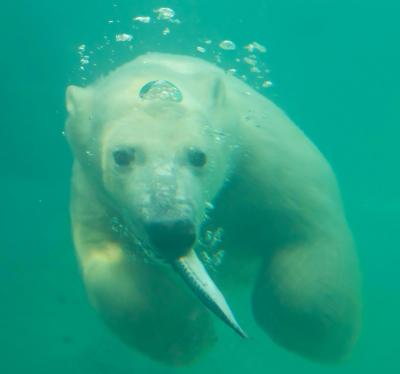
Los Angeles, Feb 23 (IANS) Widespread pollution from the toxic “forever chemicals,” known as Per- and Polyfluorinated Substances (PFAS), is contaminating and potentially harming hundreds of species of wildlife around the world, said a new study.
The study, released by the Environmental Working Group, an American non-profit environmental group, on Wednesday reveals the global extent of the PFAS pollution problem with a first-of-its-kind map using rigorous data to show the sheer scale of the threat PFAS pose to wildlife, Xinhua news agency reported.
Pollution from the “forever chemicals” contaminates polar bears, tigers, monkeys, pandas, dolphins and fish and has been documented in more than 330 other species of wildlife around the world, some endangered or threatened, the study added.
Researchers pointed out that hundreds of studies have found PFAS chemicals in a wide variety of other wildlife species globally, including many types of fish, birds, reptiles, frogs and other amphibians, large mammals, like horses, and small mammals, such as cats, otters and squirrels.
“From country to country, and across continents, PFAS pollution is everywhere. No matter the location, no matter the species, nearly every time that testing is done we find contamination from these toxic chemicals,” said researchers in the study.
PFAS are known to cause health problems in humans, and very low doses of PFAS have been linked to suppression of the immune system, said the study, adding that research increasingly suggests wildlife could suffer similar harms when exposed to PFAS.
There may be more than 40,000 industrial polluters that may discharge PFAS in the US — tens of thousands of manufacturing facilities, municipal landfills and wastewater treatment plants, airports, and sites where PFAS-containing firefighting foam has been used are potential sources of PFAS discharges into surface water, according to the study.
Researchers noted that national and international regulatory action is urgently needed to protect wildlife from PFAS contamination.
–IANS
int/khz/











